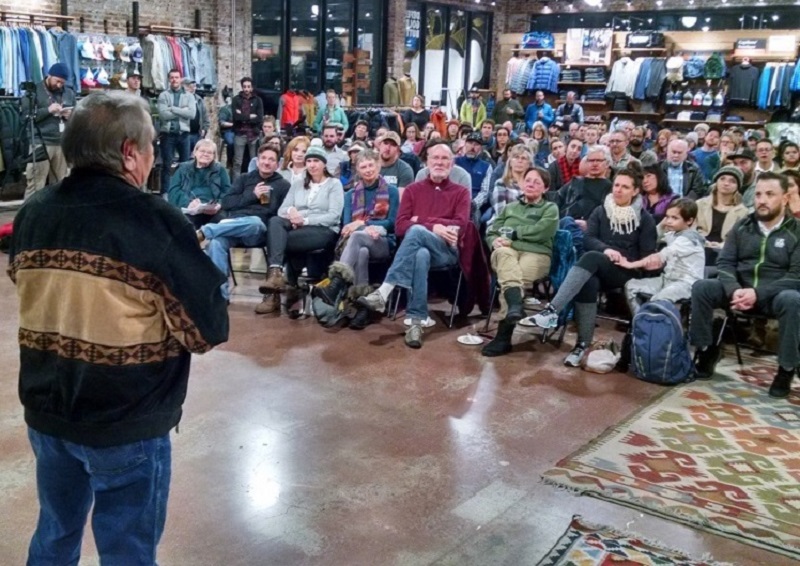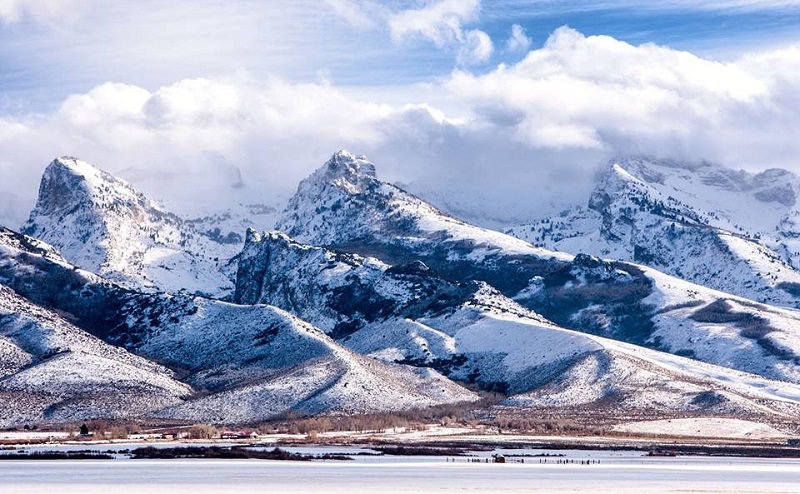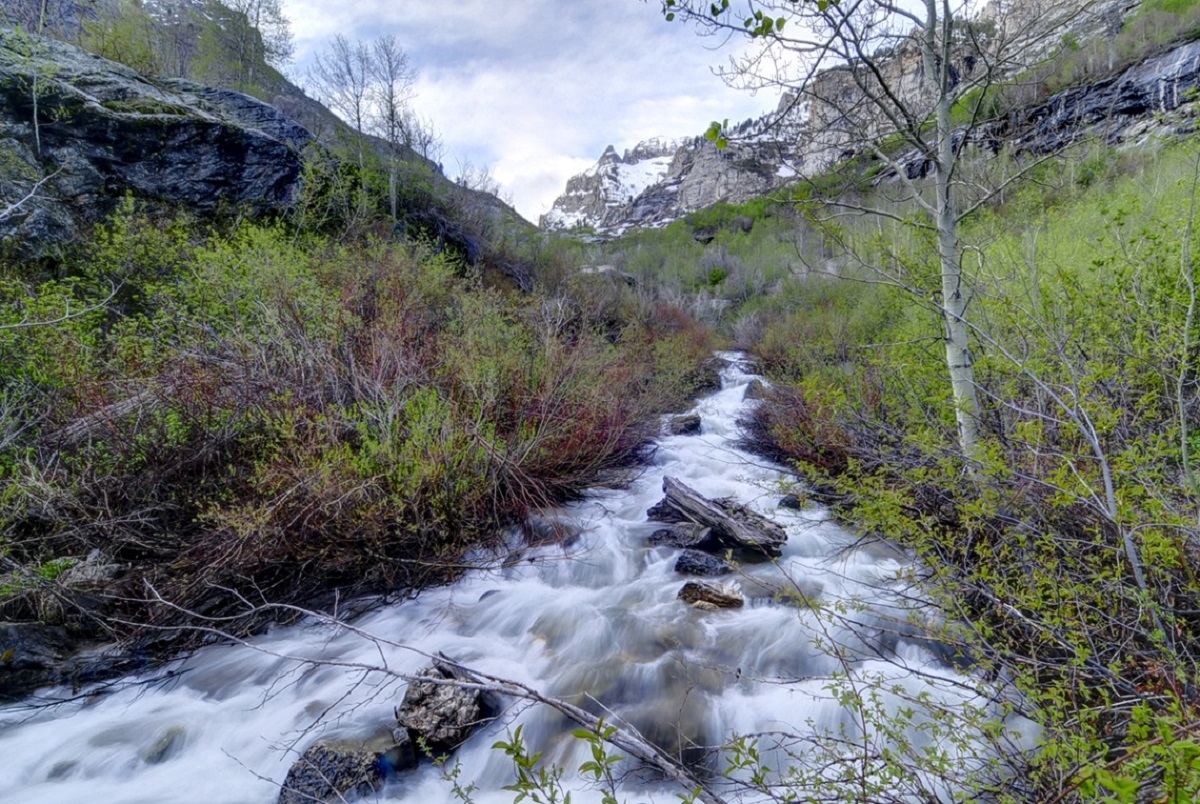UPDATE - March 14, 2019: Today, the US Forest Service issued their final Environmental Assessment on Nevada’s Ruby Mountains-- denying the Bureau of Land Management’s (BLM) request to offer parcels for leasing in the landscape. The decision comes after after an outpour of public opposition and restricts BLM from offering the sale of parcels in the Ruby Mountains for oil and gas development.
"This win is a direct result of the advocacy by the Te-Moak Tribe of the Western Shoshone, particularly the South Fork and Elko Bands, who worked tirelessly to defend their ancestral homelands," said Christian Gerlach of the Sierra Club Our Wild America campaign.
Read more in the press release.
Original blog post:
It’s difficult to choose which anti-environment policy of the Trump administration will go down in history as the most damaging. Well, OK—it’s climate change denial. But one vote for second place is the under-the-radar haste with which it’s attempting to sell off fossil fuel leases on public lands. Our public lands.
One such gem in the crosshairs is northeastern Nevada’s Ruby Mountains—a rugged, isolated range of stunning alpine landscapes that have earned it the nickname “Nevada’s Swiss Alps” (though locals refer to “the Rubies”). A combined 54,000 acres are under threat of drilling and fracking, and outside parcels scheduled for sale next month are closely adjacent to such critical waterfowl migratory habitats as its Ruby Lake National Wildlife Refuge.
A Forest Service decision on lease sales in the Rubies was due last June but is still pending, most recently thanks to pushback from citizens, elected officials, and conservation groups, including the Sierra Club.
“What heightens this threat is how majestic and beloved the Rubies are. Even folks who normally support this type of exploration want to protect them,” says Christian Gerlach, an organizing representative with the Our Wild America campaign at the Sierra Club Toiyabe Chapter.
The chapter partnered early on with the Center For Biological Diversity to encourage public awareness around protecting the Rubies, and it remains a key collaborator. An array of other groups joined in, some long-time partners (National Wildlife Federation, for example) and some non-traditional allies (Backcountry Hunters and Anglers, Bighorns Unlimited, for example). Gerlach says of the latter, “They’re an essential part of the community. Around $165 million annually comes into Elko County from tourism and sporting activities such as hunting and fishing; it’s a huge part of the economy and lifestyle.”
Gerlach reached out last fall to bands of the Te-Moak Tribe of Western Shoshone, whose culture has long been intertwined with the Ruby Mountains. They have a long history of protecting their ancestral lands, dating back to original settlers in the mid-19th century. The South Fork band and the Te-Moak Tribe of Western Shoshone, many of whom live in close proximity to areas threatened by leasing, have adopted governing council resolutions opposing fracking and drilling, now and in the future, and have spoken out at public meetings in support of keeping the Rubies pristine.

South Fork Band Chairman Larson Bill speaks at the Sierra Club-hosted event at Patagonia in Reno. Photo by Brian Beffort/Sierra Club
Such collaborative efforts resulted in the Forest Service receiving over 13,000 comments last April, following two public-comment periods. Gerlach feels they have provided extra value because most came from individuals, around 8,000 in Elko County alone. “It’s an area typically friendly to mining and fossil fuel development, so it’s good to see that many people commenting directly,” he says.
Momentum continued to build this month with a series of public meetings across the state. In Reno on January 15, the Toiyabe Chapter co-hosted the first of three meetings. Led by chapter director Brian Beffort and attended by 140 hardy souls undaunted by a snowstorm, the event at a Patagonia store featured presentations by partner organizations. Representatives for U.S. senators Catherine Cortez Masto and Jacky Rosen contributed remarks. The emotional highlight was provided by South Fork Band chairman Larson Bill and Fermina Stevens, a member of the Te-Moak Tribe of Western Shoshone, who both traveled nearly 300 miles in bad weather to speak movingly in support of their ancestral lands.
Gerlach led a January 16 meeting in Las Vegas attended by 55 activists, which featured a presentation about species unique to the Rubies by a representative of the Red Rock Audubon Society. A third meeting, held in Elko on January 17, was organized by coalition partners National Wildlife Federation and Trout Unlimited. Some 70 local residents attended, including sportsmen and representatives of the Te-Moak Tribe of Western Shoshone. Signed postcards from all three events were sent to the Forest Service.
Gerlach had help promoting and facilitating the Las Vegas meeting from Tygel Pinto, a New Mexico native and Las Vegas resident who’s been a Sierra Club volunteer for three years. He was drawn in by Gerlach’s enthusiasm. “Christian was adamant about what he was doing, and I got interested in doing it, too,” Pinto says. “And the more I did, the more I wanted to keep going.”
Tygel Pinto at Gold Butte National Monument, Nevada. Photo courtesy of the Sierra Club.
Pinto’s first campaign involved an illegal grazing standoff in Nevada’s Gold Butte National Monument, and he continued his activism at Bears Ears National Monument in Utah, Yucca Mountain in Nevada, and various other campaigns against oil and gas drilling. “Tygel has been absolutely pivotal to the success of our efforts in Nevada,” says Gerlach. (“I’m a co-conspirator,” Pinto counters.)
Regarding his involvement with the Rubies campaign, Pinto expresses his feelings both at the personal and big-picture level. “I get energized being away from the city,” he says. “Las Vegas can suck the energy from you. Being in these untouched places is rejuvenating. Our resources are limited, and if we don’t take care of them now we’re just thinking about instant gratification, and not what’s best for the long run.”
A Forest Service decision seems imminent on lease sales in the Rubies, and the outcome will dictate immediate next steps. Nonetheless, Gerlach envisions the momentum generated on behalf of the Rubies being applied to oil and gas campaigns around the state, including a threat to lands near Great Basin National Park, and he’s hoping the non-traditional coalition will continue to work together.
To this end, he’s planning a mixer on February 15 at the Las Vegas Sierra Club office called “Make Nevada Public Lands Your Valentine.” His target audience is Sierra Club members and non-members alike. “I’m aiming for new volunteers and collaborators,” he says.
As the threats multiply, our natural places can never have too many champions. The Sierra Club will continue to join forces with other protectors of nature to fight for preservation of our beloved public lands.
******
Take action! If you believe the Ruby Mountains are too precious to pollute, make your voice heard by signing this petition.

The Ruby Mountains with snow. Photo courtesy of Kurt Kuznicki.
